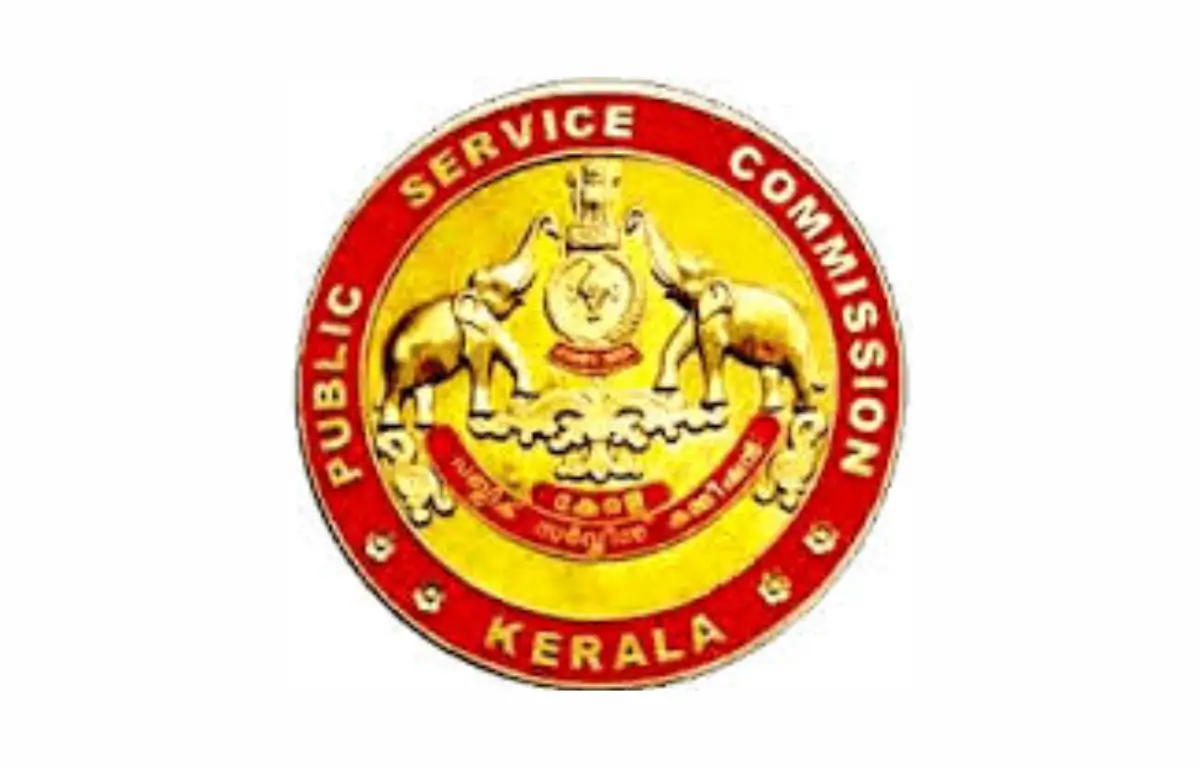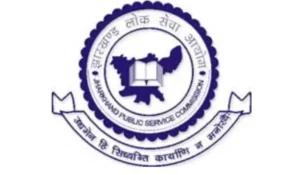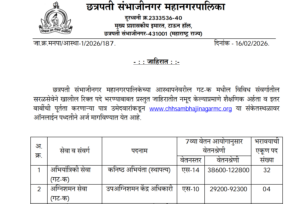The Kerala Public Service Commission (KPSC) is responsible for hiring eligible candidates for Kerala Food Safety Officer posts and the online registrations for same have been completed earlier. Registered candidates are now supposed to undergo the first stage of the selection process i.e. written examination. The Kerala Food Safety Officer Exam Date 2024 is scheduled for 18th January 2025 (Wednesday). Candidates who have applied for this government job must start with their written exam preparation through the updated syllabus and exam pattern provided in the article.
Kerala Food Safety Officer Recruitment 2024- Exam Highlights
The purpose of the recruitment drive is to find suitable candidates to take on the role of Food Safety Officer in the state of Kerala. The applicants selected for the position will control the state’s requirements for food safety, get an overview of the recruitment from the table below.
| Kerala Food Safety Officer Recruitment 2024- Highlights | |
| Organization | Kerala Public Service Commission (KPSC) |
| Posts | Food Safety Officers |
| Category | Government Jobs |
| Mode of Application | Online |
| Kerala Food Safety Officer Written Exam Date | 18th January 2025 (Wednesday) |
| Selection Process | Written Examination Document Verification Interview (If required) |
| Salary | Rs. 39300/- to Rs. 83000/- |
| Official Website | https://www.keralapsc.gov.in/ |
Kerala Food Safety Officer Exam Date 2024 Out
The Kerala Public Service Commission (KPSC) has announced the Kerala Food Safety Officer Exam Date 2024, the written examination is scheduled for 18th January 2025 (Wednesday). Candidates have to appear for this 100-mark examination in offline mode for 1 hour and 30 minutes. It is suggested to prepare well for this exam to score good marks.
Kerala Food Safety Officer Recruitment 2024- Important Dates
The official notification for Kerala Food Safety Vacancy 2024 was released for recruiting a Food Safety Officer through a selection procedure, candidates who were interested in being hired for this role have applied in the online registration process. As the exam date is announced, candidates must also note that the admit card for the same will be released 7-10 days before the exam.
| Kerala Food Safety Officer Recruitment 2024- Important Dates | |
| Events | Dates |
| Official Notification Release Date | 1st March 2024 |
| Apply Online Start Date | 1st March 2024 |
| Last Date to Apply Online | 3rd April 2024 (up to 12 midnight) |
| Kerala PSC Food Safety Officer Hall Ticket 2025 | 8th January 2025 |
| Kerala Food Safety Officer Exam Date | 18th January 2025 |
Kerala Food Safety Officer 2024 Hall Ticket Out
The Kerala Public Service Commission (KPSC) released the hall ticket for Kerala Food Safety Officer posts on 8th January 2025. Candidates registered for the exam can download their admit card from the official website KPSC or from the direct link shared here.
Kerala Food Safety Officer Notification 2024 PDF
The advt no. 006/2024 has specified the age limit, pay scale, application procedure, qualifications, and other essential details. Candidates are advised to thoroughly read advertisement notification pdf to get details about the concerned posts. The direct link to download Kerala Food Safety Officer Notification 2024 pdf has also been shared here with the candidates, candidate can click on this link and go through entire notification pdf.
Kerala Food Safety Officer Recruitment 2024 Apply Online
The online application window has now been closed by the Kerala Public Service Commission (KPSC), eligible candidates have completed their registration process. The authorities will not accept any application form now, only those who have registered themselves will be called for first stage of selection process. The direct link to apply for the Kerala Food Safety Officer Recruitment 2024 has also been inactivated as registrations are closed on official web portal.
Steps to Apply for Kerala Food Safety Officer Recruitment 2024
To apply for the Kerala Food Safety Officer posts, candidates must follow a complete step-by-step procedure which is mentioned here below.
1. First, visit the official website of the Kerala Public Service Commission (KPSC) i.e. https://www.keralapsc.gov.in/.
2. Tap on ‘One Time Registration Login’.
3. Click on the ‘New Registration’ tab and then enter all the required information including the candidate’s information, and create a user ID & password.
3. You will receive your user ID and password after finishing the registration procedure. Use this user ID and password to log in to the official website.
4. Select the Kerala PSC Food Safety Officer Recruitment 2024 announcement and select the “Apply Online” option.
5. Now, candidates have to carefully enter all the information and upload the candidate’s photograph with the name and date.
6. Click on the Registration Card button to print the application and save it for the future.
Kerala PSC Food Safety Officer Recruitment 2024 Application Fees
The application process for the Kerala Food Safety Officer Recruitment 2024 is completely free of cost. Candidates belonging to either of the categories such as general, sc/st, PwD, etc. do not have to pay any fee for filling out the application form.
Kerala Food Safety Officer Recruitment 2024 Eligibility Criteria
To become Kerala Food Safety Officer, candidates must meet the necessary eligibility requirements as set by the official authorities. The main criteria based on which the eligibility of the candidates is determined are educational qualification and minimum & maximum age.
Kerala Food Safety Officer Age Limit
Only the candidates who were born between 2nd January 1998 and 1st January 2024 are eligible to apply for the Kerala PSC Food Safety Officer Recruitment 2024. The minimum age limit for the candidates is 18 years and he/she must not be more than 36 years of age.
| Kerala Food Safety Officer Age Limit | |
| Particulars | Age |
| Minimum Age | 18 years |
| Maximum Age | 36 years |
Kerala Food Safety Officer Educational Qualification
The minimum educational qualifications that candidates must have for Kerala Food Safety Officer posts are mentioned here below.
- Candidates must have a degree in food technology, dairy technology, biotechnology, oil technology, veterinary science, agricultural science, microbiology, biochemistry, or
- A master’s degree in chemistry from a university accepted by any Keralan university, or its equivalent qualifications.
Kerala Food Safety Officer Recruitment 2024 Selection Process
Candidates have to pass a three-stage selection process involving a written exam, document verification and an interview to get selected for Kerala PSC Food Safety Officer Recruitment 2024. Candidates clearing all the stages one by one are considered for the final selection.
| Kerala Food Safety Officer Recruitment 2024 Selection Process | ||
| Stages | Names | Description |
| Stage I | Written Examination | The selection of the candidates for Kerala Food Safety Officer posts begins with a written examination. Candidates’ knowledge mainly related to the particular posts is evaluated at this stage. |
| Stage II | Document Verification | Candidates scoring the minimum qualifying marks in stage I are called with their essential documents for verification purposes. |
| Stage III | Interview (If required) | This final stage is only conducted if required. The selected candidates will be called for a personal interview and the candidates will need to answer the question asked by the interviewer. |
Kerala PSC Food Safety Officer Recruitment 2024 Salary
The candidates who are finally hired for the posts of Food Safety Officer in the state of Kerala receive a good amount of their monthly salary. Along with the salary, candidates also enjoy certain perks and benefits given by the official authorities. The pay scale for the Kerala PSC posts is between Rs. 39,300/- to Rs. 83000/-, candidates must work hard to get selected and get the lucrative pay scale.
Kerala Food Safety Recruitment 2024 Exam Pattern
The written examination for Kerala Food Safety Officer Recruitment 2024 is for a total of 100 marks including objective-type questions. The exam pattern will help the candidates prepare a better study plan for the written examination.
- The total duration of the written exam is 1 hour 30 minutes.
- The candidates will be rewarded 1 mark for each correct answer and 0.33 marks will be deducted for every incorrect answer.
- There will be a total of 100 questions in the Kerala PSC written examination.
| Subjects | Total No. of Questions | Total Marks | Time Duration |
| Food Technology | 20 | 20 | 1 hour 30 minutes |
| Dairy Technology | 20 | 20 | |
| Veterinary Sciences | 20 | 20 | |
| Nutritional Biochemistry and Food Analysis | 20 | 20 | |
| Microbiological, Biotechnological, and Medical Aspects | 20 | 20 | |
| Total | 100 | 100 |
Kerala Food Safety Officer Recruitment 2024 Syllabus
Candidates must study subjects like Food Technology, Dairy Technology, Veterinary Sciences, Nutritional Biochemistry and Food Analysis, Microbiological, Biotechnological, and Medical Aspects for the Kerala Food Safety written examination. The topic-wise syllabus for the written exam is provided below.
| Subjects | Topics |
| Food Technology | Principles and methods of food preservation – Heat processing, pasteurization, canning, dehydration, freezing, freeze drying, fermentation, microwave, irradiation, and chemical preservatives – Aseptic preservation, hurdle technology, hydrostatic pressure technology, microwave processing, microfiltration, bactofugation, ultra-high voltage electric fields, pulse electric fields, high-pressure processing, irradiation, thermosensation, ohmic heating, dielectric heating, infrared, induction heating, antibacterial and bacteriocins. Food fortification. Food additives. Classification, composition, manufacture, packaging, storage and defects of tomato products, other convenience foods from fruits and vegetables, beverages – tea, cocoa, and coffee – pickles, chutney, sauces, spices, jam, Jelley, marmalade, health drinks, restructured fruits and vegetables, preparation of fruits and vegetables, minimally processed products and Individually Quick Frozen products. Milling, processing, composition, structure, product development, and byproduct utilization of cereals, pulses, millets, and oil seeds. Antinutritional factors. Instant ready mixes. Packaging – materials and methods. Nutritional labeling of food. Quality control – systems and tools. Food plant sanitation. Food hygiene. Environment and waste management. Total quality management, good management practices, HACCP, and Codex Alimentarius commission |
| Dairy Technology | Composition of milk- Physicochemical properties of milk- milk hygiene- milk microbiology – Market milk: a collection of milk- cooling and transportation– filtration/clarification- standardization- homogenization – pasteurization- UHT – sterilization- packaging. Tests for milk quality and detection of adulterants- dairy plant and equipment hygiene and sanitation. Definition, classification, composition, outline of manufacture, packaging, storage, and defects of the following milk products: Cream, Malai, Dahi /Curd, yogurt, Channa / Paneer, Cheese, Ice cream, Frozen desserts, Evaporated milk, Condensed milk, Milk powder, Butter, Ghee, Chakka and Shrikhand, Indigenous milk products. Foods for infant nutrition. Whey products, Edible casein products |
| Veterinary Sciences | Standards for organization and layout of abattoirs, handling and transport of meat animals including poultry. Ante mortem and post mortem examination. Scientific slaughtering and dressing of carcasses. Evaluation, grading, and fabrication of dressed carcasses including poultry. Fraudulent substitution of meat, preservation of meat, and aquatic foods. Ageing of meat. Packaging of meat and meat products. Physico-chemical and microbiological quality of meat and aquatic food and food products. Organic meat food products. Food products of genetically modified animals and marine origin. Meat as a source of disease transmission. Physical, chemical nutritional, and functional characteristics of egg. Processing of Egg and egg products. Preservation and storage of eggs |
| Nutritional Biochemistry and Food Analysis | Chemical composition of food: Carbohydrates, lipids, proteins, fiber, vitamins, and minerals – characteristics, sources, physiological and biochemical functions, daily requirements, digestion, and absorption. Biological value of proteins (BV), Protein efficiency ratio (PER), Digestability coefficient, Net Protein Utilization, Net Protein Ratio(NPR), Chemical Score, Free Radicals, and Antioxidants. Energy value of foods, Respiratory Quotient (RQ), Determination of Basal Metabolic Rate (BMR), Determination of energy metabolism during work, Energy expenditure for various types of activities, Recommended Daily Allowance (RDA), Specific Dynamic Action (SDA) of foods, Balanced diet formulation. Analytical techniques used in the detection of adulteration of food: Principle, procedure, and detectors of chromatographic techniques (Column, paper, TLC, HPLC, and GC), Spectroscopic techniques (IR, UV, MS, and AAS). Food Analysis – moisture content, ash, fat, carbohydrate, crude fiber, crude protein, sodium, potassium, calcium, and phosphates. Food adulteration: common adulteration, contamination, and pesticide analysis. Oils and Fats – Iodine value and saponification value |
| Microbiological, Biotechnological, and Medical Aspects | Microscopy, staining and culture techniques, sterilization techniques, culture media, factors influencing microbial growth, growth curve, thermal death time and thermal death points, D-value, Z- value. Sources of microorganisms in food, perishable, semi-perishable and non-perishable foods, intrinsic and extrinsic parameters influencing microbial content of food, Food spoilage types, causes, and indications. Control of spoilage-pre-harvesting and post-harvesting food processing. Food Borne Diseases: Definition, Classification (Foodborne intoxications & Foodborne infections), neurolathyrism, aflatoxins, Ergotism, Epidemic dropsy, Typhoid fever, Salmonellosis, Staphylococcal intoxication, Botulism, Bacillus cereus food poisoning, E.coli diarrhoea, Cholera, Shigellosis, Brucellosis, Food poisoning: Types of food poisoning, method of investigation of food poisoning, prevention, and control- food sanitation, refrigeration, surveillance. Food handlers: medical examination of food handlers, infections transmitted by food handlers, education of food handlers. Adulteration of foods: Health hazards. Sanitation of eating places: minimum standards, storage of uncooked foodstuffs, waste disposal, water supply, and washing facilities. Fermented foods- types, production, organisms involved, advantages and disadvantages, spoilage of fermented foods. Microbiological analysis of food and water- qualitative and quantitative, indicator organisms, coliforms, detection of pathogens, molecular techniques for detection of microbes. Microbiological standards of food and water. Water purification for domestic and municipal purposes. Sewage treatment. Application of enzymes in the food industry, production of food flavor and colour. Enzyme immobilization and applications. Use of amylase, invertase, protease, pectinase, and cellulase in food industries. Bioreactors. Single-Cell Proteins. Molecular detection of food contamination. Genetically modified food and its labeling |



 HSSC Forest Guard Recruitment 2026 for 7...
HSSC Forest Guard Recruitment 2026 for 7...
 JPSC Polytechnic Lecturer Recruitment 20...
JPSC Polytechnic Lecturer Recruitment 20...
 MCL Recruitment 2026 Notification Out fo...
MCL Recruitment 2026 Notification Out fo...







